Peer-to-Peer Intervention to Address Financial Strain
By: Monica Da Ponte and Andrew Pinto
The ongoing COVID-19 pandemic is shining a light on financial precarity among Canadians. Prior to this crisis, 44% of Canadians said it would be difficult to meet their financial obligations if their pay was late, and more than 1 in 10 families with debt skipped or delayed a non-mortgage payment. COVID-19 has had an enormous impact on our economy, with 5.5 million Canadian workers affected by the shutdown between February to April. The unemployment rate was at a “record high” of 13.7% in May.
We have long known that, on average, wealthier people are healthier than poorer people. Living on a low income impacts everything from food security, and housing stability, to access to healthcare and our stress levels. Given this, we need to think about individual and systemic mechanisms that can help enable financial resiliency for all Canadians.
On the individual front, peer-to-peer interventions may have potential. They can build individual capabilities, address issues of shame, and support individual action. They can help individuals manoeuvre complicated administrative systems and build self-advocacy skills. In time, taking part in such interventions could help support people to join movements that lead to system change.
Strive is one such peer-to-peer intervention. It uses facilitated peer-to-peer learning to help participants build the core skills required for financial resiliency. In addition, Strive includes a variety of mechanisms to support and encourage participants to take action.
Strive emerged out of the Banff Centre’s Alt/ Now Economic Inequality program in 2016. Supported by a grant from the Institute for Global Health Equity and Innovation at the Dalla Lana School for Public Health, our study team implemented and evaluated the Strive peer-to-peer financial empowerment intervention within the St. Michael’s Hospital Academic Family Health Team.
The study brought together three groups of patients: millennials who were no longer in school, precariously employed adults and older adults nearing retirement. We held in-person facilitated peer-to-peer sessions lasting two hours each over 10 consecutive weeks. The sessions guided groups through a curriculum designed to address the key enablers of financial success and covered subjects ranging from budgeting and credit basics to understanding risks and strategies to increase income. Throughout the sessions, participants were encouraged to set goals, report back on progress, successes and challenges. Participants did not receive payment or honorariums, but they had the opportunity to win one of three weekly prizes of $10 used to encouraged action and progress.
Our evaluation, published in Family Practice, found some hopeful insights. At 3 months, participants were more optimistic about their financial situation (54% improved compared to baseline), felt more in control of their finances (55% improved compared to baseline), and had less stress about their finances (50% improved compared to baseline). In focus groups after the sessions ended, participants reported receiving support from each other and that they saw they were not alone in their struggles.
Strive has since been piloted at York University with two cohort groups of students and received similar results and positive feedback. Further research is needed to test Strive in other settings, but such peer-to-peer interventions hold promise.
Monica Da Ponte is an adjunct professor at the Schulich School of Business at York University and the founder of Shift & Build, a boutique consultancy focused on helping to advance social change. She is the creator of Strive, and those interested in learning more can contact monicadaponte [ at ] letsstrive.ca. Andrew Pinto is the founder and director of the Upstream Lab, and an Associate Professor at the University of Toronto.
